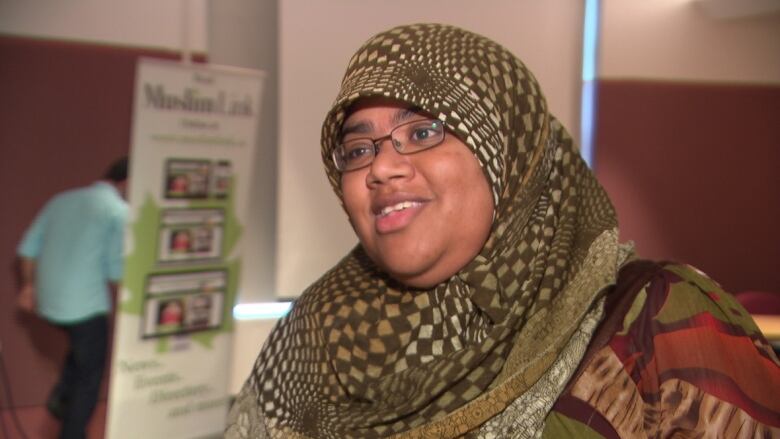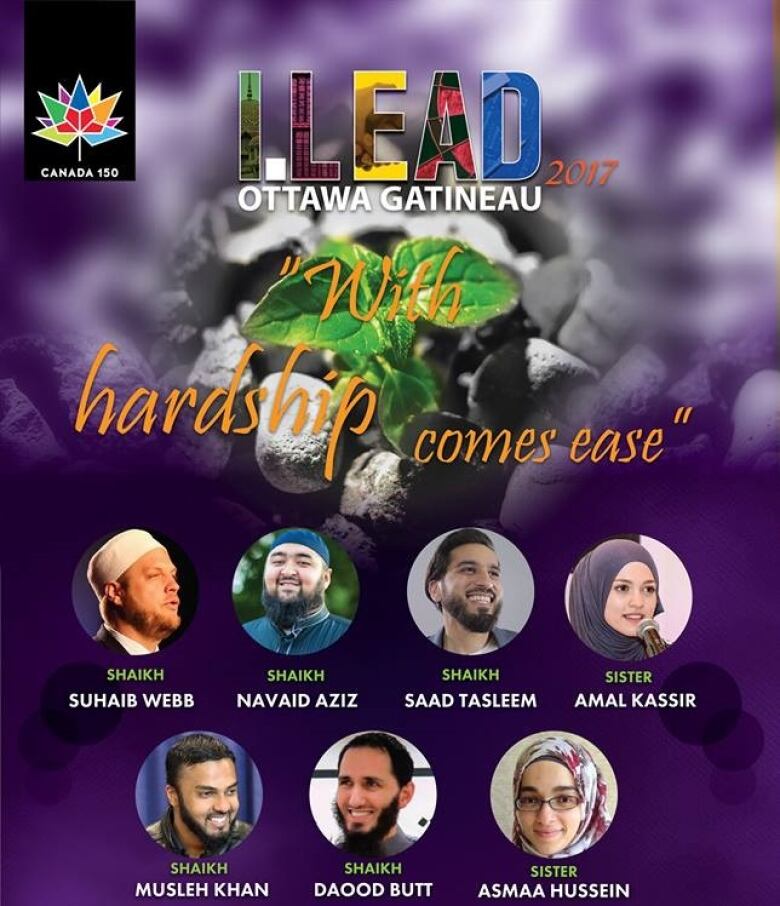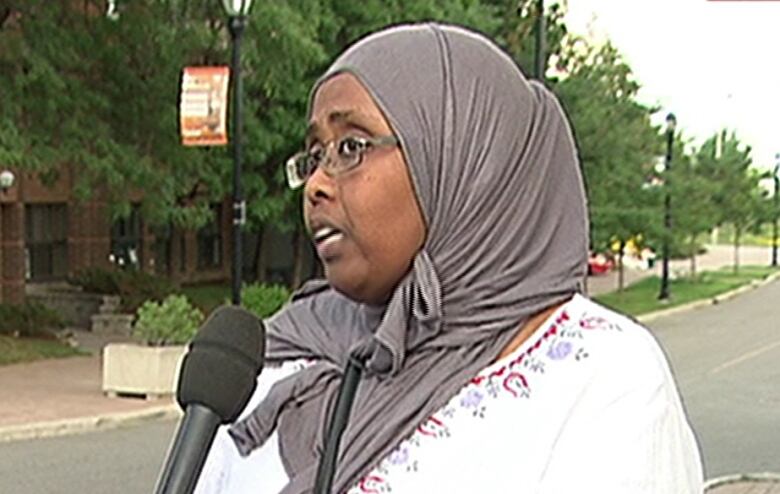Black Muslims in Ottawa upset over lack of diversity at Muslim conference
Ottawa has large black Muslim community, but not reflected in speakers at I.Lead conference

Some black Muslims in Ottawaare upset there are no people from their community speaking at a Muslim conference in the capital on Saturday.
I.Lead is an annual conference put together with the help of various mosques in Ottawa. This year, there are seven speakers five men and two women who will address theconference's theme "With hardship comes ease."
However, none of them are black.
JalilMarhnouj, who helpedorganize the conference, said several black Muslims were approached to speak but were unavailable.
"Every year, we invitespeakers from different backgrounds and they have attended and sometimes they can't. And this year, some of them couldn't," he said.
Lots of experts to choose from
ChelbyDaigle, editor of Muslim Linkand the author of a recent report on anti-black racism in Ottawa, said part of the issue is the premisethatthere are only so manyqualified black people available.
"People don't realize that that is a form of discrimination," she said. "It's not intentional, but it shows a lack of understanding of the complexityof the Muslim experience in the city."
Daiglebelieves there are all types of experts that could have been invited to speak from Ottawa's large black Muslim community and fromacross the country.
"Ottawa's poet laureate is a black Muslim. The poet laureate right now for Edmonton is a black Muslim. We haveGinella Massa, who's an anchor and who's also a black Muslim. We have CBC journalist Eman Bare who we profiled on Muslim Link, who's an award-winning journalist who also writes for Teen Vogue and helps to run Muslim Girl," Daiglesaid.
Amran Ali,a Somali-Canadian Muslimwoman living in Ottawa,said she was also disappointed at the lack of diversity among speakers.

"Ottawa's Muslim community is diverse. It's made up of different ethnic backgrounds and different socioeconomic backgrounds," Ali said.
"Any event that purports to be an event for the large Muslim community and in particularMuslim youth must be a reflection."
Marhnoujsaidconference organizers are open to hearing suggestions and the conference will be a chance for people to voice their concerns.
"We will listen to them and we will take that into consideration, whatever they come up with, we will act accordingly," he said.
"We work so hard to bring unity to ourcommunityand to bring knowledge," he said. "And in theend it's always a human effort and with human efforts there will always be shortcomings."
Intersection of identities
Chelby Daigle thinks having greater diversity atconferences like I.Lead is important because intersecting identities shape people's experiences differently and that needs to be reflected.
"I'm still more likely to face a hate crimebecause I'm black," Daiglesaid.
According to Statistics Canada, in 2015 hate crimes targeting blacksdeclined but they still made up thelargest percentageof the total number reported. Meanwhile, the number of police-reported hate crimes against Muslims jumped by 60 percent.
"If you're experiencing both anti-black racism andIslamophobiaas a young person, that's probably having a serious impact on your mental health, your concept of identity [and] where you feel welcomed," Daiglesaid.
I.Lead isn't the firstMuslim-centred conference in Canada that's received criticism fromblack Muslims.
At theReviving the Islamic Spirit conference in Toronto in December 2016, American Islamic scholar and president of Zaytuna College, Hamza Yusuf, madecommentsmany participants found dismissedthe struggles and work of anti-black racism advocates.
In particular, when asked if Muslim communities should be more supportive of movements like Black Lives Matter, Yusuf said, "There are twice as many whites being shot by police but nobody ever shows those videos. It's the assumption the police are racist and it's not always the case."

Promoting greater diversity andinclusion
Amran Ali believes the key to ensuring greater diversity is reaching out to a broad range of people.
"Because it's about Islam it means it has to be a big umbrella event where all Muslims those who look like me, those who look like the organizers, those who look like Caucasian folk, Indigenous folks should see themselves reflected," she said.
"If we're not reflected on the stage where people are talking or lecturing or teaching or inspiring and motivating, then frankly it feels isolating. It makes you feel you don't belong, It makes you feel that you are less than."
Daigleagrees and saiddiversity, from a business standpoint, makes sensebecause it attracts a greater number of people. "We often look at [diversity]as a chore. Or we look at it as if we're doing a favour to a community that's complaining. And we need to stop looking at it that way and say, 'no, this will make our event better.'"
Daigle points to Carleton UniversityMuslim Students' Association as an example of a group that has committed to being diverse and inclusive.
"We're seeing more and more Muslim associations in the country creating equity advisory committees to make sure that it's actually an inclusive space. And it showsit's not hard to do but, again, it's something you have to choose to do."












_(720p).jpg)


 OFFICIAL HD MUSIC VIDEO.jpg)
.jpg)



























































































